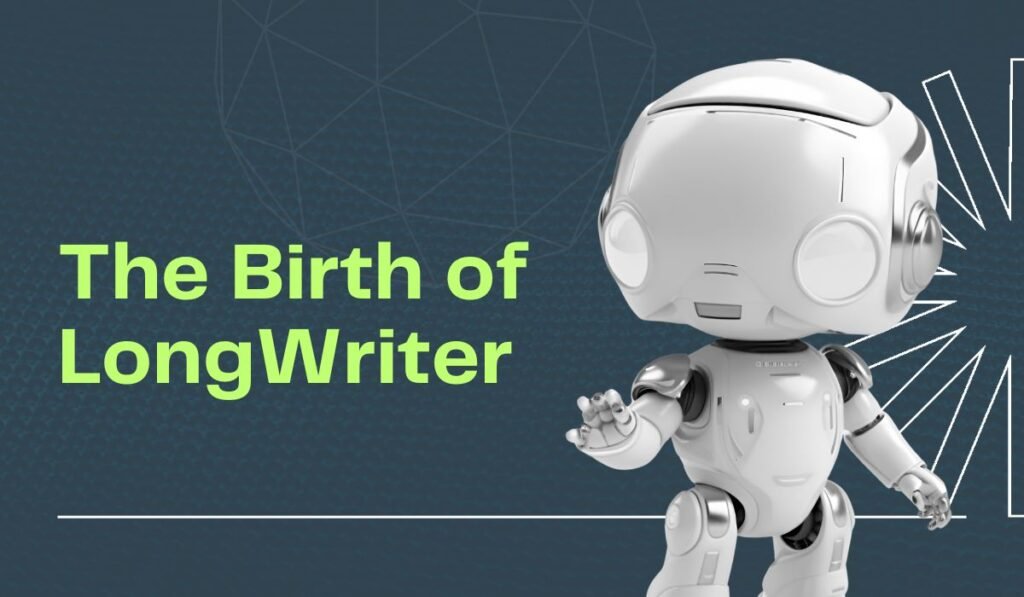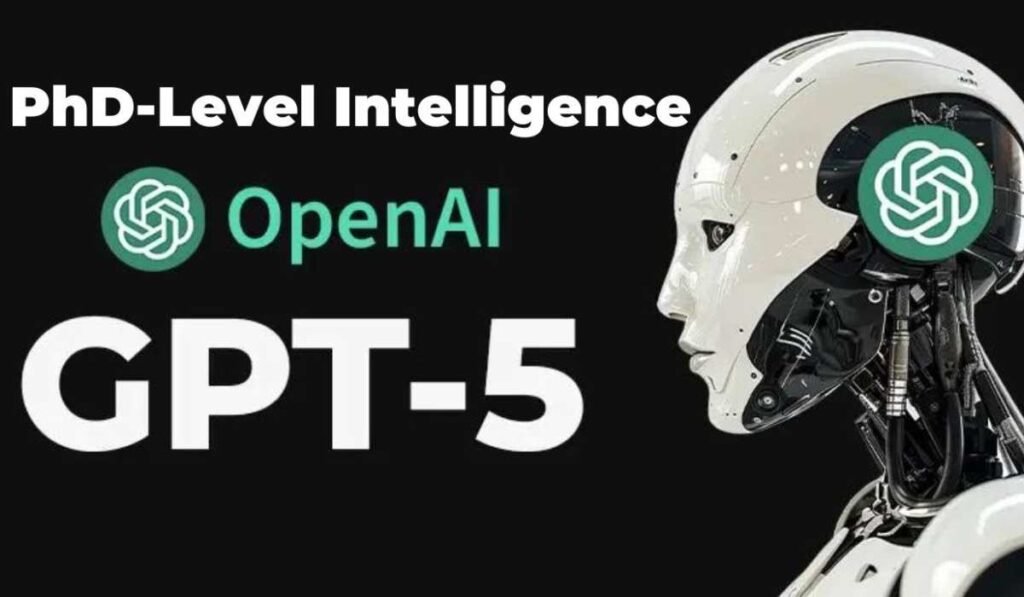Imagine a world where artificial intelligence can write a novel, craft a comprehensive research paper, or generate an in-depth technical report—all in a single session. This isn’t science fiction anymore; it’s our new reality. Researchers at Tsinghua University in Beijing have unveiled a groundbreaking AI writer capable of producing over 10,000 words of coherent, contextually relevant content in one go. This technological marvel, aptly named LongWriter, is set to redefine the landscape of content creation. But what does this mean for human writers, and how will it shape the future of storytelling?
The Birth of LongWriter: A New Chapter in AI-Generated Content
Led by Yushi Bai, the team at Tsinghua University has tackled one of the most significant challenges in natural language processing: generating long-form, high-quality written content that remains coherent and contextually relevant throughout. Their paper, “Long Writer: Unleashing 10,000+ Word Generation from Long Context LLMs,” introduces a system that addresses the limitations of previous large language models (LLMs).
Breaking the Barriers of AI Writing
While traditional AI writers like GPT-3 and GPT-4 have shown impressive capabilities in generating human-like text, they typically excel at producing shorter outputs. As the length of the text increases, these systems often struggle with:
- Maintaining overall structure
- Ensuring individual sections remain relevant
- Avoiding context drift
- Managing long-range dependencies
LongWriter overcomes these hurdles by incorporating several key innovations:
- Improved memory retention
- Enhanced ability to revisit earlier parts of the text
- Dynamic writing adjustments based on overall document progression
The Science Behind LongWriter
The breakthrough achieved by the Tsinghua University team is rooted in a crucial insight: there’s a direct correlation between the length of texts encountered during training and the length of coherent outputs an AI writer can produce. This revelation led to the development of LongWriter 6K, a specialized dataset designed to enhance the model’s long-form text generation capabilities.
LongWriter 6K: Training the AI for Marathon Writing
The LongWriter 6K dataset consists of 6,000 writing samples, each ranging from 2,000 to 32,000 words. This diverse collection includes:
- Academic papers
- Essays
- Technical reports
- Stories
- Detailed analyses
By training the model on this variety of extended content, the researchers ensured that the AI writer could handle different types of long-form writing tasks while maintaining consistency across multiple sections or chapters.
How LongWriter Works
LongWriter builds upon existing LLM frameworks but incorporates several key innovations that enable it to handle the complexities of extended text generation:
- Exposure to Longer Samples: By training on documents ranging from 2,000 to 32,000 words, LongWriter develops a better understanding of long-form structure and coherence.
- Context Management: The system is designed to maintain and revisit context throughout the generation process, ensuring that later sections remain relevant to earlier ones.
- Dynamic Adjustment: LongWriter can adapt its writing style and content based on the overall progression of the document, maintaining consistency across thousands of words.
- Improved Memory Retention: The model can effectively “remember” information from earlier in the text, reducing repetition and inconsistencies.
These innovations allow LongWriter to outperform even larger models from major tech companies, especially in creating long, well-structured, and contextually accurate content.
The Impact of 10K AI Writing on Various Industries
The advent of this advanced AI writer has the potential to revolutionize multiple sectors:
1. Publishing
- Rapid production of first drafts for books, reports, and extensive texts
- AI-assisted creation of structured chapters or complete manuscripts
- Freeing human creativity for more intricate aspects of writing
2. Marketing
- Generation of in-depth white papers, case studies, and reports
- Faster production of high-quality content at lower costs
- Enhanced ability to deliver personalized materials for different audience segments
3. Education
- Creation of comprehensive study materials, textbooks, and lesson plans
- Generation of personalized study guides based on individual student progress
- Development of extensive educational resources covering complex subjects in-depth
4. Journalism
- Production of detailed investigative reports, feature articles, and opinion pieces
- Assistance in creating comprehensive background information for news stories
- Rapid generation of data-driven financial reports and updates
Challenges and Ethical Considerations
While the potential benefits of long-form AI writers are significant, their widespread adoption raises several concerns:
Information Integrity and Misinformation
The ease of generating extensive, coherent content increases the risk of:
- Spreading false information
- Content manipulation
- Propagation of fake news, especially in digital environments like social media
Impact on Human Writers
The rise of AI-generated content poses challenges for human content creators:
- Increased competition in content creation
- Potential devaluation of human-written content
- Shifts in the role of human writers from creators to editors and refiners
Academic Integrity
In educational settings, AI writers present significant challenges:
- Need for more sophisticated plagiarism detection tools
- Potential undermining of critical thinking and research skill development
- Difficulty in distinguishing AI-generated work from student-authored papers
Ethical and Legal Implications
The advancement of AI writers raises complex questions:
- Attribution of authorship and creativity
- Intellectual property rights for AI-generated content
- Potential impact on human language skills and communication abilities
The Future of AI and Content Creation
As we stand at the precipice of this new era in content generation, it’s clear that the release of LongWriter marks a significant milestone in the evolution of AI writing systems. Future developments may focus on:
- Enhancing AI’s understanding of nuanced topics
- Incorporating real-time updates in generated content
- Developing more interactive collaboration between AI and human writers
Adapting to the AI Writing Revolution
To navigate the challenges and opportunities presented by advanced AI writers, various stakeholders will need to adapt:
- Content Creators: Focus on developing unique voices, critical thinking skills, and the ability to work collaboratively with AI tools.
- Educators: Develop new teaching methods that emphasize creativity, critical analysis, and the ethical use of AI in writing.
- Policymakers: Create frameworks for managing AI-generated content, addressing issues of authorship, copyright, and misinformation.
- Technology Developers: Continue refining AI models to enhance their capabilities while implementing safeguards against misuse.
- Readers and Consumers: Develop critical literacy skills to discern between human-written and AI-generated content, and to evaluate information sources critically.
The emergence of LongWriter and similar advanced AI writers represents a paradigm shift in content creation. While it offers incredible opportunities for enhancing productivity and creativity across various industries, it also presents significant challenges that society must address.
As we move forward, the key will be to harness the power of AI writing tools while preserving the unique value of human creativity and critical thinking. The future of content creation lies not in competition between humans and AI, but in finding innovative ways to collaborate and complement each other’s strengths.
LongWriter is a revolutionary AI writing system developed by researchers at Tsinghua University that can generate over 10,000 words of coherent, contextually relevant content in one go.
LongWriter overcomes limitations of traditional AI writers by incorporating innovations such as improved memory retention, enhanced context management, and dynamic writing adjustments that ensure consistency and relevance throughout long texts.
The LongWriter 6K dataset consists of 6,000 writing samples ranging from 2,000 to 32,000 words, enabling the AI to learn long-form structure and coherence, which enhances its ability to generate high-quality long-form content.
LongWriter has the potential to revolutionize several sectors, including publishing, marketing, education, and journalism, by facilitating rapid content generation and enhancing the quality of written materials.
The rise of AI-generated content presents challenges such as increased competition, potential devaluation of human-written works, and a shift in human writers' roles from creators to editors and refiners.
Ethical concerns include issues of misinformation, the potential undermining of academic integrity, authorship attribution, and the impact on human language skills and communication abilities.
In education, LongWriter can create comprehensive study materials, personalized study guides, and extensive resources, but it also raises concerns about plagiarism and the development of critical thinking skills.
Educators should develop new teaching methods emphasizing creativity, critical analysis, and the ethical use of AI in writing to prepare students for the evolving landscape of content creation.
Content creators should focus on developing unique voices, enhancing critical thinking skills, and learning how to collaborate effectively with AI tools to complement their strengths.
The future of AI writers like LongWriter will likely involve enhancing AI's understanding of nuanced topics, incorporating real-time updates, and fostering interactive collaboration between AI and human writers.





